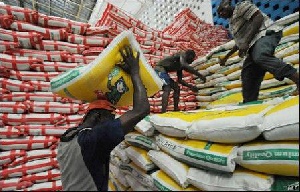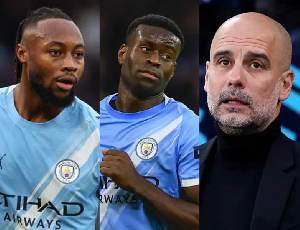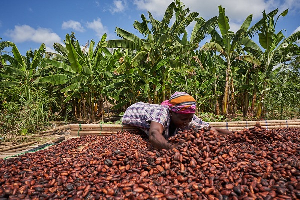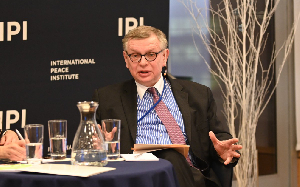Rice importers and owners of other businesses in the country sponsor politicians, making it impossible to implement certain policies when the politicians are voted into office, National Chairman of the People's National Convention (PNC) Bernard Mornah has revealed.
Mr Mornah argued that the practice was detrimental to the country’s democracy to the extent that politicians were controlled by external forces.
He said policies that will improve the lives of Ghanaian citizens are scrapped in order to please the sponsors of the politicians and it was time the practice came to an end.
Mr Mornah, who was a guest on Class FM’s Executive Breakfast Show on Tuesday May 17, 2016, told Prince Minkah: “Do you know why we cannot stop rice importation in this country? Because those who are importing rice are financing political parties. So you will think that when you win elections you would want to come and put in policies that you produce the rice domestically, but what do you want them to do? That is where they got their money from to be able to finance you.”
He continued: “In 2003 thereabouts, [there was] Act 699 – which was on importation of rice and poultry in this country – increasing import duty, which means you are making imported chicken and rice expensive. What that would do is that it will boost domestic production and encourage farmers. The then Minister of Finance, Osafo Marfo, after the Poultry Farmers Association took the matter to court that it was not being implemented and they were suffering losses, went to parliament to seek the revocation of that law. In effect, those who are importing chicken will benefit. Those producing chicken in Ghana suffered a loss.”
He blamed such actions on rent-seeking, which leads to the detriment of citizens.
“You can talk about anything, but those who are running the economy are the businesses and they will support the political parties. You do not ask them where they get their monies. When you win elections and now you want to implement your policies that will make the Ghanaian economy survive, then they will say: ‘Chief’ [and come at you],” he explained.
He added: “We [Ghanaians] are not taking our democracy into our own hands. The Electoral Commission has to look for donors before we can conduct our own elections, so who is controlling your democracy?”
Politics of Thursday, 19 May 2016
Source: classfmonline.com













